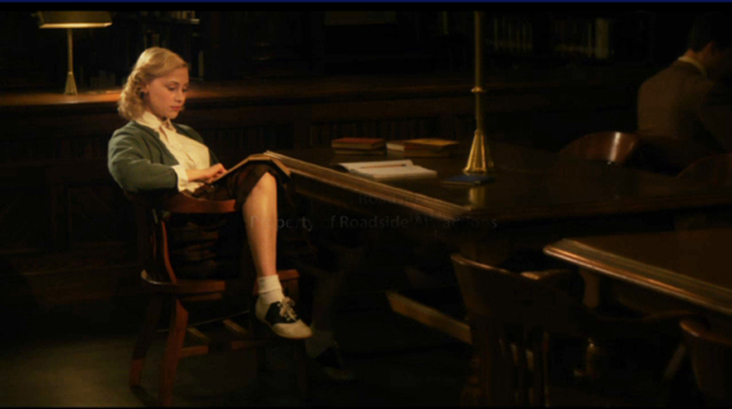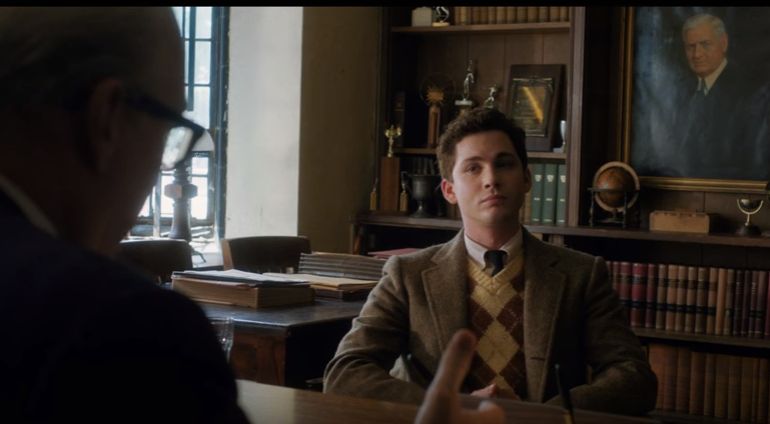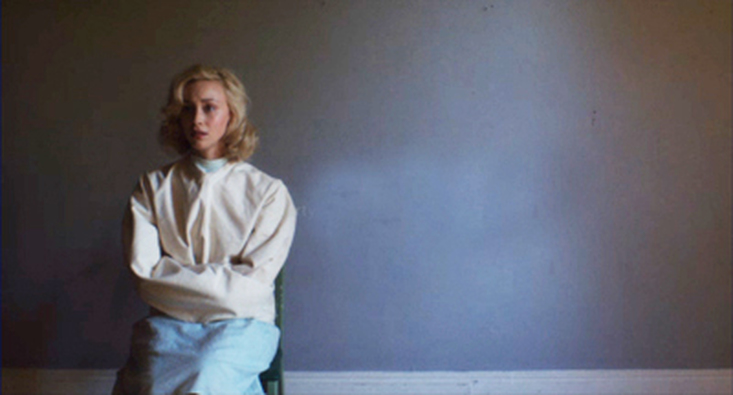 Set in 1951, James Schamus' Indignation tells the complex and ultimately quite tragic story of Marcus Messner, the son of a small kosher butcher from Newark, N.J. A highly intelligent man near the top of his class, Marcus is one of the lucky ones, able to avoid the Korean War draft due to him starting at college in the upcoming weeks. Leaving Newark to study at a small, conservative college in Ohio, Marcus soon finds himself confronted for his rather unique beliefs, specifically for the time period, struggling to deal with both his sexual repression related to growing up in a conservative Jewish household, as well as his cultural disaffection related to him being an atheist at a time in America where it was simply put, quite rare. James Schamus' Indignation is a well-crafted piece of filmmaking which manages to cleverly navigate the token structure for these types of stories, being a film manages to be a powerful testament to the restrictive, anti-freedom based principles of social conservatism, while simultaneously delivering a unique, and mature coming-of-age story about a young man attempting to understand himself, struggling with issues related to love, sex, and independence. The storytelling and structure of Indignation is nothing singular or even particularly unique, yet the screenplay remains clever, playing in the space of this type of story, with one example being how the film is deceptive about Marcus' atheist beliefs early on, implying to the viewer that he himself is Jewish. One thing that really stood out to me about Indignation is how spirituality is not presented solely as a religious concept, with Marcus' existential lamentations about fate and the nature of the universe being concepts very similar to those shared by any organized religion, with the only true difference being Marcus' inability to never surrender his free will as a scholar and intellectual thinker. Indignation evokes an environment in which religious freedom doesn't apply to atheist individuals, expressing how the very treatment in which Marcus receives from the Dean of Students at the university is in reality a contraction on the very ideals which America was founded on, though I'm not so sure the film's writer actually realizes that. While Logan Lerman carries his weight, it's Sarah Goden performance as Olivia, his love interest, which is one of the true highlights of the film, a performance that manages to capture the fragility and schizophrenic nature of a such a damaged character. This is a woman who is unquestionably coming from shattered household, a character who suffers from some form of undisclosed mental illness. She has experienced more hardship and seen more of the world outside of the confines of Marcus' upbringing in Newark, a character who manages to be less naive but also more cynical about the truths of the world. The romance which unfolds between these two characters doesn't feel completely earned throughout the narrative but it's hard not to be compelled by these characters and this mature, muddy love-story between two characters who at times feel like they only have each other. While subtle in its style, Indignation is a well-crafted piece of filmmaking, a film that picks its moments overall but uses composition throughout to evoke the isolation of its two main characters, particularly when they are apart. One of my favorite shots of the film takes place when Marcus enters the Dean's office for the first time of the film, a perfectly symmetrical composition, which Marcus obscures by sitting down at a chair that isn't in the center of the frame. While it's a single composition, I'm not sure there is a better visual sequence in the entire film, with Indignation visualizing the defiant nature of Markus, a man who will not conform to something he simply doesn't believe in. Indignation references both the work of Bertrand Russell and a quote from Ben Franklin, "Democracy is two wolves and a lamb voting what to have for lunch", two men who couldn't share much more diverse political beliefs related to government. I'm not sure if this was intentional or not, but the film paints a rather vivid example of the debate between decentralized vs. centralized government, capturing how democracy itself is important but can still lead to very oppressive cultural forces. Some will scoff at this, all three of you who read this review, but one could argue that this film is steeped in libertarian ideology, being a film that touches on the horrors of interventionism while profiling a man in Marcus who feels restrained by a society in which he does not share the same social perspective as the masses. Without question, James Schamus' Indignation is a film which is heavily critical of 1950s conservatism, specifically related to the religious right, revealing how morality is not a practice that is confined to those who are religious, being a film that not only touches on sexual repression and cultural repression, but also the disgraceful treatment of mental illness which took place during the time.
0 Comments
Leave a Reply. |
AuthorLove of all things cinema brought me here. Archives
June 2023
|



 RSS Feed
RSS Feed
